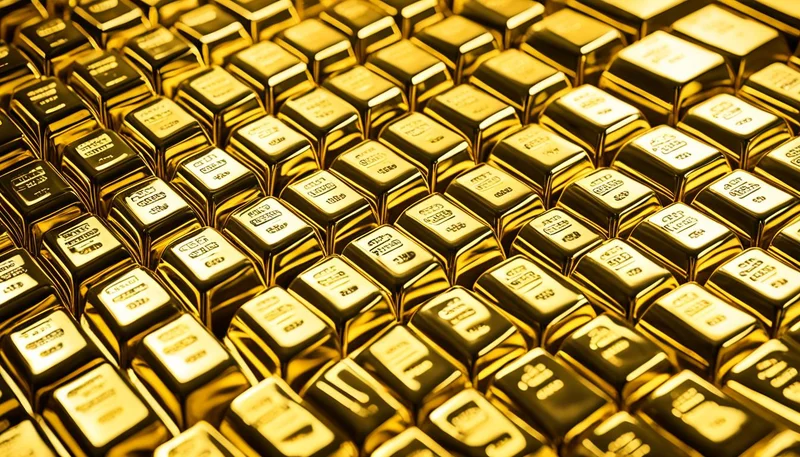Tracking Wealth Through the AI Lens
Tracking Wealth Through the AI Lens
So, some guy in a suit named Ed Yardeni is out there telling anyone who will listen that gold is going to hit $10,000 an ounce by 2030. Ten. Thousand. Dollars.
Let that sink in. He’s not whispering it at a cocktail party; he’s publishing it in research notes. My first thought? Great. Just what we needed. Another number so absurd it sounds like the high score on a vintage arcade game. This isn't an investment forecast. It's a distress signal disguised as a hot tip.
Yardeni's prediction implies a 151% jump in the price of a shiny metal that does... what, exactly? It sits in a vault. It doesn't pay dividends, it doesn't innovate, it doesn't build anything. It just is. And apparently, in the future he envisions, just being is worth more than most people's cars. This is a wild prediction. No, 'wild' doesn't cover it—this is a five-alarm dumpster fire of a forecast.
Yardeni’s logic boils down to a few key points, and none of them should make you feel warm and fuzzy. He talks about economic uncertainty, geopolitical chaos, Trump's tariffs, China's imploding housing market—basically, a laundry list of everything that’s wrong with the world. His argument is that when the world goes to hell, people flock to gold.
He's not wrong about the flocking part. But let's call it what it is: panic. This isn't a sophisticated hedge; it's the financial equivalent of hoarding toilet paper in March 2020. The only difference is the people doing the hoarding are entire nations.
He calls it the "'Gold Put,' provided by central banks." A "put" is supposed to be a safety net. This ain't a safety net. This is central banks—the people who are supposed to be steering the ship—frantically buying up lifeboats because they can smell the smoke coming from the engine room. They’re scooping up gold by the metric ton, from Kazakhstan to Bulgaria, because they're losing faith in the very system they’re in charge of.

So when Yardeni says their buying is "bullish," what I hear is that the people with the most information are preparing for the worst. Does that make you want to buy gold, or does it make you want to build a bunker? And what, precisely, do they see on the horizon that has them spooked enough to revert to a currency system from the 16th century?
Then there’s the momentum argument. Yardeni says gold could hit his target "if it keeps up its current pace." It's offcourse a brilliant piece of analysis. It’s like saying if my car keeps accelerating, eventually I'll reach the moon. It’s a statement that’s technically true but practically meaningless. He even claims gold is within "shouting distance" of his $4,000 target for 2025. I must have a different definition of "shouting distance," because that's still a massive leap from where we are today.
This kind of talk is pure, uncut financial hype. It’s designed to get headlines, to get Yardeni Research's name in the news, and to get people buzzing. It works, obviously, because here I am writing about it. But it feels deeply irresponsible.
Think about it. His firm is also calling for the S&P 500 to hit 10,000 by 2030. So, in Yardeni's world, both the engine of global innovation and the emergency panic button are going to explode in value simultaneously? How does that work, exactly? It sounds less like a coherent economic vision and more like he’s just betting on everything, everywhere, all at once. It’s a bet on pure, unadulterated chaos, and honestly...
Maybe I’m the crazy one. Maybe in a world where everything is digital, ephemeral, and one EMP blast away from non-existence, a heavy, tangible rock is the only thing that makes sense. Then again, I also saw people fist-fighting over paper towels two years ago, so maybe human sanity was never really on the table.
Let's be brutally honest. A $10,000 gold forecast isn't a bullish investment thesis. It's a profound vote of no-confidence in the future. It’s an admission that the complex, interconnected global financial system we’ve built over the last 75 years is so fragile that the "smartest guys in the room" are running back to the oldest, dumbest asset they can find. This isn't about getting rich. It’s about a deep-seated fear of getting wiped out. And if that's the world we're heading for, an ounce of gold is going to be the least of our problems.